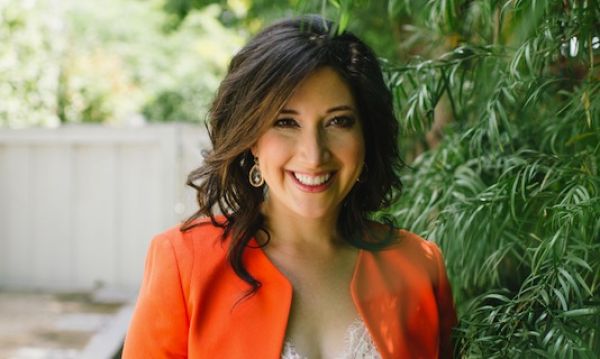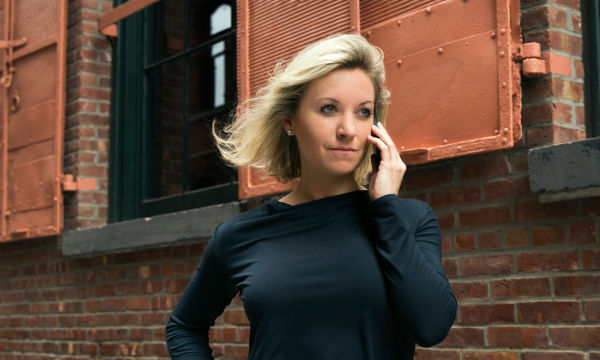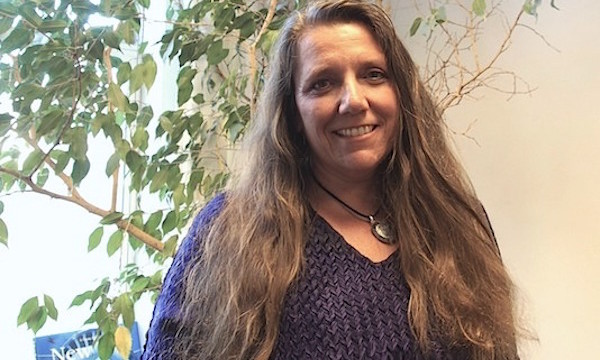Architect Jean Brownhill Is Democratizing the Home-Renovation Process
With her platform Sweeten, this architect-turned-entrepreneur is changing the way we turn houses into homes.

Shop This Look
Growing up, I didn’t even know what an architect did. My guidance counselor in high school saw that I was really good at art and math, so he suggested I think about becoming an architect. I didn’t fully understand what that was, but then my mom found out that the program at Cooper Union was free, so I applied. I didn’t realize it was harder to get into than West Point until later, which was probably a good thing. Looking back, I think this is one of the things that has helped me be successful: I don’t internalize statistics like that.
Want more M Dash?
Sign up for our weekly newsletter.
Thank you!
I care a lot about craft and how things are made. Cooper Union had this amazing workshop—woodworking, metal, plaster casting—that takes up the entire fourth floor. I spent a lot of time there, and it was just so gratifying to understand how something is made, how to put it together. Like, when I’m in a car, even if I’m driving, I’m still a passenger in that technology. But to be able to look at furniture, walls, electrical, plumbing, buildings—the construction of the huge built architecture all around us—and have a sense of how it’s made is just so empowering. I would never be where I am today if I hadn’t spent all those years learning that our understanding of anything begins with questioning how it was created in the first place.


I often say that a renovation doesn’t start when someone posts their project on our website. It started years before—maybe in high school, with someone who studied hard to get into the right college so they could get the right job so that someday it would lead to this crescendo moment of buying a home. It is a natural human instinct to want to make a house into a home; you can see that from the first cave paintings to the $400 billion spent on renovations by the consumer population in the past year.
My story is exactly the same as so many homeowners’ stories. My first year out of school, I made $24,000 working 60- to 80-hour weeks. Years later, I bought a house in Brooklyn’s Bed-Stuy neighborhood. The down payment alone was more than I ever thought I would have been able to save. On top of that, the renovation was another $125,000, which felt crazy, and I wound up hiring the wrong general contractor, which became a terrible, painful experience. But out of that terrible experience came my passion for solving the problem of how to get high-quality construction and design resources to people who are not multi-millionaires, just people who have worked hard to buy something and make it their own.

A chance encounter with Warren Buffet pushed me to become an entrepreneur. In 2007, I read Roger Lowenstein’s book Buffet: The Making of an American Capitalist. I was so impressed with Buffet’s ideas about values-based leadership that I decided to write him a letter. You could have knocked me over with a feather when he wrote me back. We ended up corresponding several times, and I was invited to the annual meeting in Omaha; I even got to meet him briefly. Before that, it felt like there was a wall between that world and my world, and this one act of piercing it—to have someone from the other side acknowledge me—opened my eyes to the idea that more things were possible for me, things that I had previously thought were out of reach.
The times in my career that I have been most successful coincide with being honest about my curiosities. After leaving residential architecture, I went to work for Coach Inc. in their renovation and construction division. This was around 2004. I was really into the internet and how it was impacting the world. Before long, I told my boss that I thought we needed a website to make the construction and architecture groups more efficient. “Can you do that and still do your regular job?” he asked. After I said yes, he told me to go build the website. I did, and I won the company’s Chairman’s Award for designing web platforms to streamline retail construction worldwide. In 2011, I was fortunate to receive a Loeb Fellowship at Harvard’s Graduate School of Design, and I was able to work deeply on that question of how to connect people with construction resources through the internet.

Sometimes it’s when you feel like you have nothing to lose that things just work best. Sweeten launched right before I left for Harvard, because I figured I had Harvard at my back and I’d be fine. Our mission—and by we, I mean me, because there was no one else at this point—was to match clients with the best general contractors and track those projects all the way to conclusion. I was running it on nights and weekends. It was a massive spreadsheet that I had to manually update, with lots of logistics done via email, Excel, and Google forms. I didn’t sleep that much.
I used to think an ideal “team” was just 10 of me. Like, if we could just clone me 10 times, then everything would get done. Now I see so clearly that this is a ridiculous thought. To be successful, you need an actual team: people with different perspectives, skill sets, and values, to be thinking about the problem from all different vantage points so we can actually solve it.

The way I say “thank you” has changed. I used to think I was thanking people, but it was very surface level—like, “I probably could have done this better myself, but thanks.” But once you build a true team, “thank you” is something that comes from the depths of your heart, because you can see the incredible value they have contributed.
I hear a lot of entrepreneurs say they went into something because of a “big market.” Everybody talks about the $400 billion home renovation market and a lot of people have tried to attack it. At Sweeten, we are the only ones who have built a true marketplace around transformational renovation projects, working exclusively with licensed general contractors to complete them. [To start a business,] you have to be truly interested in solving a particular problem because there will be days, nights, weeks, months, and even years when only natural curiosity and enthusiasm will carry you forward.
Want to nominate a Woman of the Week? Email us at womanoftheweek@mmlafleur.com. Photos by Rich Gilligan.








